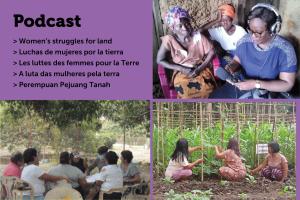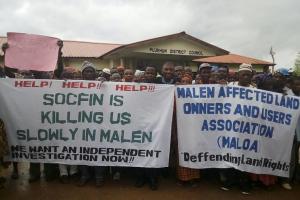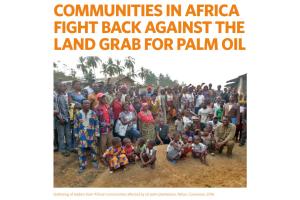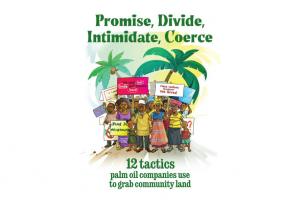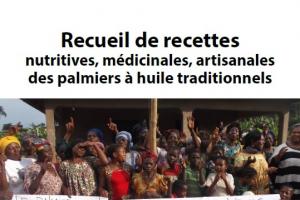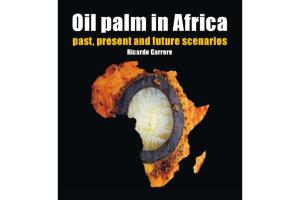Palm Oil
The oil palm tree is native to West Africa. It is an important tree for forest-dependent communities, their cultures and their economies. However, large-scale oil palm monocultures for industrial production (oil and agrofuels) have been driving deforestation and land grabbing in Southeast Asia. More recently, oil palm monocultures are also driving destruction in Africa and Latin America.
Articles
19 March 2025
In the framework of International Women's Day, WRM is relaunching the podcast “Women’s struggles for land”, with stories from women’s collectives from the coastal area of Chiapas in Mexico, the Malen Chiefdom in Sierra Leone and the Kapuas river area of Central Kalimantan in Indonesia. While their stories appear quite different from each other at first glance, we find many commonalities and a strong connection between them.
Articles
16 April 2020
Civil society organizations have welcomed the finalization of a report of a Technical Committee about a legal dispute between the multinational company Socfin and communities affected by the company’s oil palm plantations in the Malen Chiefdom in Sierra Leone.
Publications
20 September 2019
A new report on the state of industrial oil palm plantations in Africa shows how communities are turning the tide on a massive land grab in the region.
Publications
4 April 2019
The booklet “Promise, Divide, Intimidate and Coerce: 12 tactics palm oil companies use to grab community land” aims to support communities who want to strengthen their resistance and better prepare themselves to stop corporations from establishing on their lands.
Publications
27 November 2018
Only available in French.
Publications
30 August 2013
Governments are opening the doors to corporations for planting vast areas of land with oil palm plantations. This trend is not only happening in West and Central African countries, but is even expanding to parts of Eastern Africa. Large scale oil palm plantations are already causing serious environmental and social impacts in some countries, resulting in loss of community rights over their territories.
